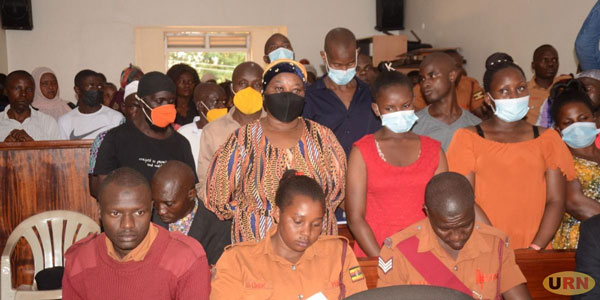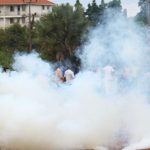The International Crimes Division of the High Court has issued an order for the medical assessment of 19 suspects linked to the Kampala Central Police Station (CPS) and IPS bombings. This examination aims to confirm their allegations of being subjected to torture while in custody. The suspects include individuals from various walks of life, such as mobile money operators, a welder, a boda boda rider, a student, a tailor, and a housewife, among others.
Justice Richard Wejuli Wabwire, on Wednesday, instructed prison doctors to carry out the medical examinations and present their findings to the court within 21 days. The decision followed the complaint of the prime suspect, Yusuf Muwonge, who claimed that he was coerced and tortured into confessing to the crimes.
Muwonge expressed his concerns in court, stating that his tormentors were present in the courtroom and had threatened his family. He acknowledged signing the documents under duress. However, Justice Wabwire directed Muwonge to address these concerns through his lawyer, Anthony Asiimwe. Asiimwe informed the court that their clients had previously raised the issue in Buganda Road Court Grade One, which had directed the prison authorities to conduct medical examinations. Regrettably, no report on this matter was available in the court file, leading Justice Wabwire to reinstate the lower court’s orders.
The prosecution initially attempted to object to these orders, arguing that they could impact their case. Nevertheless, the judge warned them against disregarding the court orders, suggesting that it could result in contempt of court.
Background:
In 2022, Buganda Road Court Grade One Magistrate Asuman Muhumuza committed the suspects to trial following investigations by the Police and the Director of Public Prosecutions. The Prosecution maintains that in 2021, Uganda experienced a series of indiscriminate bomb attacks that created fear and panic among the public. The state alleges that the aim behind these attacks was to discredit the government.
The evidence suggests that a suicide bomber detonated an Improvised Explosive Device (IED) aboard a Swift Bus on October 25, 2021, killing himself and injuring passengers in Mpigi District. The deceased bomber had resided in a room belonging to the key suspect, Sharif Kiyemba, who is still at large. Preliminary investigations led to the arrest of some suspects found in possession of an IED allegedly given to them by their co-accused.
Additionally, five women have been implicated for aiding, harboring, financing, and supporting Kiyemba in preparing or committing acts of terrorism. Ismail Kiyemba admitted to creating IEDs, including the one used by the deceased suicide bomber, and confirmed that Sharif Kiyemba had contracted him to build a more powerful bomb for future use. The state also asserts that it has enough evidence, such as call data and phone records, to prove that all the accused individuals were in constant communication with the three suicide bombers.
The committal papers indicate the state’s intention to use police reports and postmortem reports, demonstrating the injuries and deaths caused by the explosive objects produced by the suspects. Various exhibits, including phone handsets, flash discs, DVDs, CDs, chemicals, and electronic components, were recovered from Kiyemba’s possession for examination and analysis to be used as evidence in the trial.




















